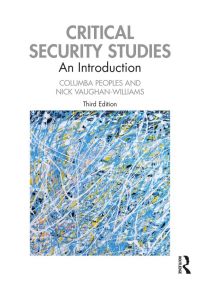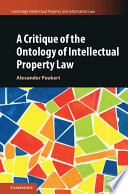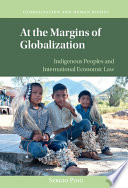Buy Critical Security Studies: An Introduction 3rd Edition PDF ebook by author Columba Peoples; Nick Vaughan-Williams – published by Routledge in 2021 and save up to 80% compared to the print version of this textbook. With PDF version of this textbook, not only save you money, you can also highlight, add text, underline add post-it notes, bookmarks to pages, instantly search for the major terms or chapter titles, etc.
You can search our site for other versions of the Critical Security Studies: An Introduction 3rd Edition PDF ebook. You can also search for others PDF ebooks from publisher Routledge, as well as from your favorite authors. We have thousands of online textbooks and course materials (mostly in PDF) that you can download immediately after purchase.
Note: e-textBooks do not come with access codes, CDs/DVDs, workbooks, and other supplemental items.
eBook Details:
Full title: Critical Security Studies: An Introduction 3rd Edition
Edition: 3rd
Copyright year: 2021
Publisher: Routledge
Author: Columba Peoples; Nick Vaughan-Williams
ISBN: 9780367224219
Format: PDF
Description of Critical Security Studies: An Introduction 3rd Edition:
This textbook introduces students to the sub-field of critical security studies through a detailed yet accessible survey of emerging theories and practices. This third edition contains two new chapters – on ‘Ontological security’ and ‘(In)Security and the everyday’ – and has been fully revised and updated. Written in an accessible and clear manner, Critical Security Studies offers a comprehensive and up-to-date introduction to critical security studies locates critical security studies within the broader context of social and political theory evaluates fundamental theoretical positions in critical security studies against a backdrop of new security challenges. The book is divided into two main parts. Part I, ‘Approaches’, surveys the newly extended and contested theoretical terrain of critical security studies: constructivist theories, Critical Theory, feminist and gender approaches, postcolonial perspectives, poststructuralism and International Political Sociology, Ontological security, and securitisation theory. Part II, ‘Issues’, examines how these various theoretical approaches have been put to work in critical considerations of environmental and planetary security; health, human security and development; information, technology and warfare; migration and border security; (in)security and the everyday; and terror, risk and resilience. The historical and geographical scope of the book is deliberately broad and each of the chapters in Part II concretely illustrates one or more of the approaches discussed in Part I, with clear internal referencing allowing the text to act as a holistic learning tool for students. This book is essential reading for upper level students of critical security studies, and an important resource for students of international/global security, political theory and international relations.





